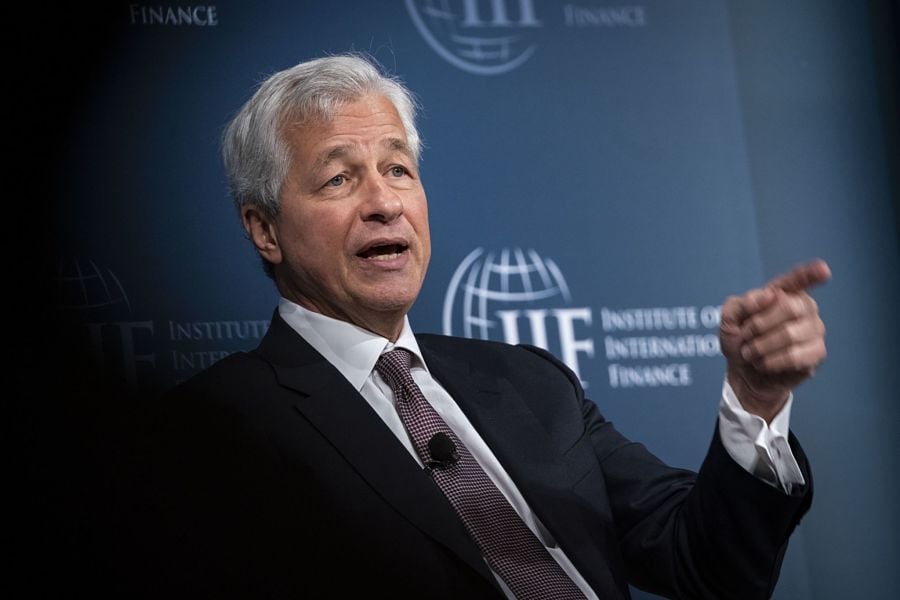

Cutting taxes for lower-income Americans would improve their upward mobility, health and lives overall, and contribute to growth of the US economy — even if doing so means raising taxes for wealthier people, JPMorgan Chase & Co. Chief Executive Jamie Dimon said.
“This is, I think, as much of a no-brainer policy as any I’ve ever seen,” Dimon said Friday at a panel discussion in Washington hosted by the Bipartisan Policy Center. Tax reductions for lower-income people would be used for food, taking care of children and education. “And I would pay for it by taxing the wealthy a little bit more.”
US lawmakers are debating reforming and expanding the earned income tax credit, or EITC, which helps some low- and moderate-income Americans cut the amount of taxes they owe annually. Under the EITC, taxpayers may be eligible for refunds if their credit surpasses their tax liability for the year. In addition to the federal EITC, many states have their own credit.
Tax increases for richer Americans could be used to fund a federal EITC expansion, Dimon said.
“There are so many tax breaks out there that shouldn’t be there,” he said.
That spurred former House Speaker Paul Ryan, who appeared on the panel with Dimon, to mention rules that allow some taxpayers to deduct certain state and local taxes from their adjusted gross income — something that tends to benefit people in higher-tax states such as New York, New Jersey and Connecticut. “SALT — let’s get rid of SALT completely,” Ryan said.
“I agree with you,” Dimon said. “And here I’m a New Yorker, and all my friends in New York hate me” because of his stance.
Dimon, 67, is among the very wealthy himself, with a net worth of $2.4 billion, according to the Bloomberg Billionaires Index. JPMorgan said last week that it raised Dimon’s pay 4.3% to $36 million for 2023, a year in which the New York-based company notched the highest profit in the history of US banking.

Looking to refine your strategy for investing in stocks in the US market? Discover expert insights, key trends, and risk management techniques to maximize your returns

The RIA led by Merrill Lynch veteran John Thiel is helping its advisors take part in the growing trend toward fee-based annuities.

Driven by robust transaction activity amid market turbulence and increased focus on billion-dollar plus targets, Echelon Partners expects another all-time high in 2025.

The looming threat of federal funding cuts to state and local governments has lawmakers weighing a levy that was phased out in 1981.

The fintech firms' new tools and integrations address pain points in overseeing investment lineups, account monitoring, and more.
RIAs face rising regulatory pressure in 2025. Forward-looking firms are responding with embedded technology, not more paperwork.
As inheritances are set to reshape client portfolios and next-gen heirs demand digital-first experiences, firms are retooling their wealth tech stacks and succession models in real time.
